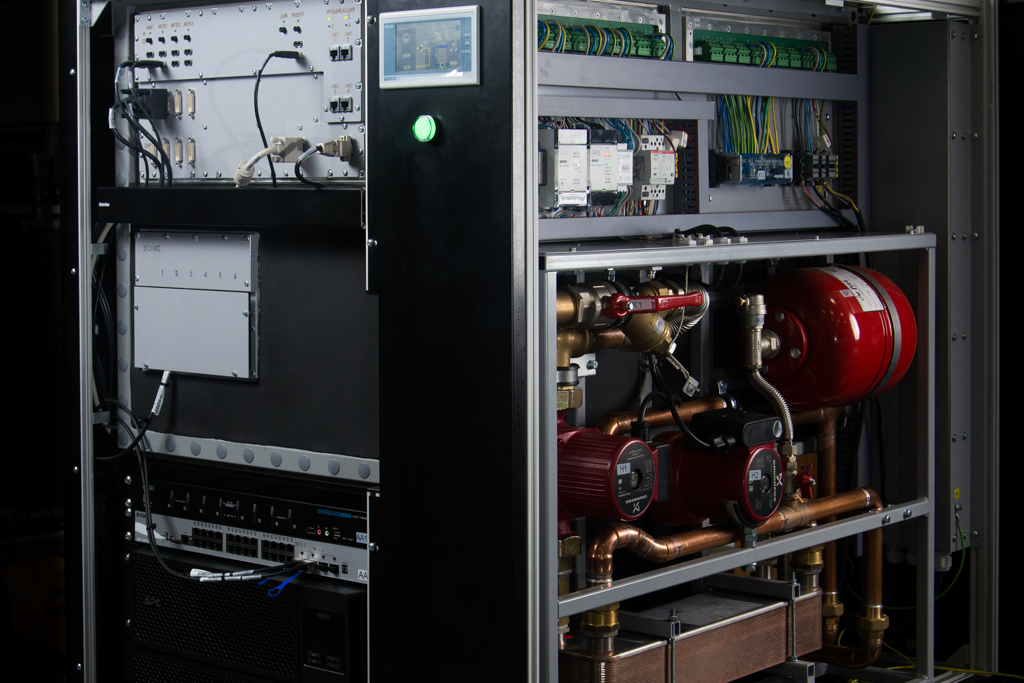Russia’s Ruselectronics Group, part of the state-owned Rostec corporation, has purportedly developed a compact “supercomputer” for defense applications with 2.2 peak petaflops of computing power, matched by 2.2 petabytes of data storage.
Announced by the Rostec press service today (Nov. 23), the 1.9 x 1.35 x 1 (m) compute module is said to provide record capacity for the space industry as well as the defense and industrial complex, using 40 percent less electricity than comparable solutions.
The system relies on immersive liquid cooling modules that enable container-based computing outside the traditionally equipped datacenter. This cooling system features a low noise level, dust and moisture protection, and is fire-safe, Rostec added.

“Our supercomputer has a very wide scope, including in the space industry,” stated Rostekh Oleg Evtushenko, executive director of the Rostec State Corporation. “For example, it can be used to automatically recognize objects in satellite imagery, simulate spacecraft and assess the state of their on-board systems. The development has a modular construction, it is equipped with unique systems for maintaining operability. This facilitates the deployment of a mobile computing system of any capacity, for any purpose, anywhere in the world.”
The Rostec press announcement did not specify processor technology nor indicate precision levels for its compute performance claims. As a point of comparison, Nvidia’s DGX-2 appliance delivers two petaflops at half-precision in a form factor that is less than half this size. Nvidia also offers the smaller form-factor, liquid-cooled DGX Station with 500 half-precision peak teraflops, provided by four V100 GPUs.
Russia has been working to develop defense-oriented supercomputers with homegrown technologies. Last year, Ruselectronics demonstrated a domestically developed microprocessor called Elbrus-8S, an eight-core chip, based on a 28-nanometer process technology. An updated version, Elbrus-8SV, provides 576 gigaflops (peak single precision) and DDR support; it is said to be nearing production status.





























































